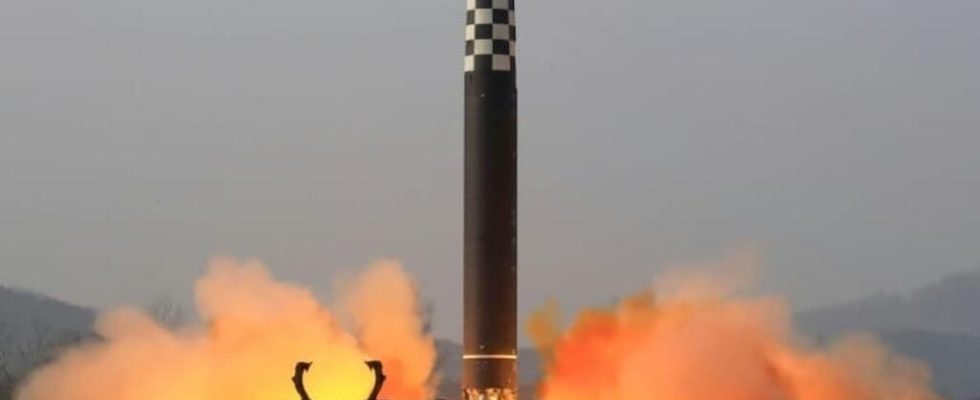North Korea has created a new public holiday to celebrate the anniversary of the successful test-firing of its Hwasong-17 intercontinental ballistic missile (ICBM) last year, the North’s state agency announced on Sunday (November 5). Korean KCNA. On November 18, 2022, Pyongyang conducted what is believed to be the first full flight test of the Hwasong-17, dubbed the “monster missile” by military analysts. Where is North Korea’s nuclear program? What threat does he represent? And what changes does the new cooperation initiated between Vladimir Putin and Kim Jong-un change? Elements of response with Professor Siegfried Hecker, one of the rare people outside the country to have been able to directly observe the regime’s nuclear installations.
2 mins
With our correspondent in Seoul, Nicolas Rocca
North Korea declares November 18 a public holiday, naming it ” missile industry day “. An announcement which is part of the political project of Kim Jong-un who announced this year that he wanted to “exponentially increase the country’s nuclear capabilities”. However, Pyongyang has not yet carried out the 7th nuclear test for which it seems to have finished preparations.
Seven trips to North Korea between 2004 and 2010, visits to the main North Korean nuclear research center in Yongbyon, Siegfried Hecker is more than legitimate in assessing the regime’s atomic capabilities.
“ How many bombs do they have? We don’t know for sure surely between 20 and 60 “, he said during a press conference in Seoul.
The man who for eleven years directed the Los Alamos center in the United States, where the first nuclear bomb in history was designed, believes that the North Korean threat is above all regional:
“ Can they plant a bomb on a long-range ballistic missile to reach the United States? I don’t think they can make a bomb small enough, put it in a missile and prove it to us “.
US expert worries about North Korea’s cooperation with Russia
The regime seeks to miniaturize its bombs, but also to multiply them. This requires technological know-how, and a significant quantity of enriched uranium or plutonium, which North Korea will have difficulty obtaining on its own.
“ We have evidence that the North Koreans are working with the Russians and sending them weapons, but what is Russia doing in return? What worries me is nuclear cooperation and transfers of nuclear materials. Kim Jong-un cannot exponentially increase his arsenal without help from Russia »
After 30 years of unsuccessful negotiations with the United States and South Korea, Siegfried Hecker believes that Pyongyang is focusing on the benefits offered by its relationship with Beijing and Moscow.
Read alsoNorth Korea launches intercontinental ballistic missile
